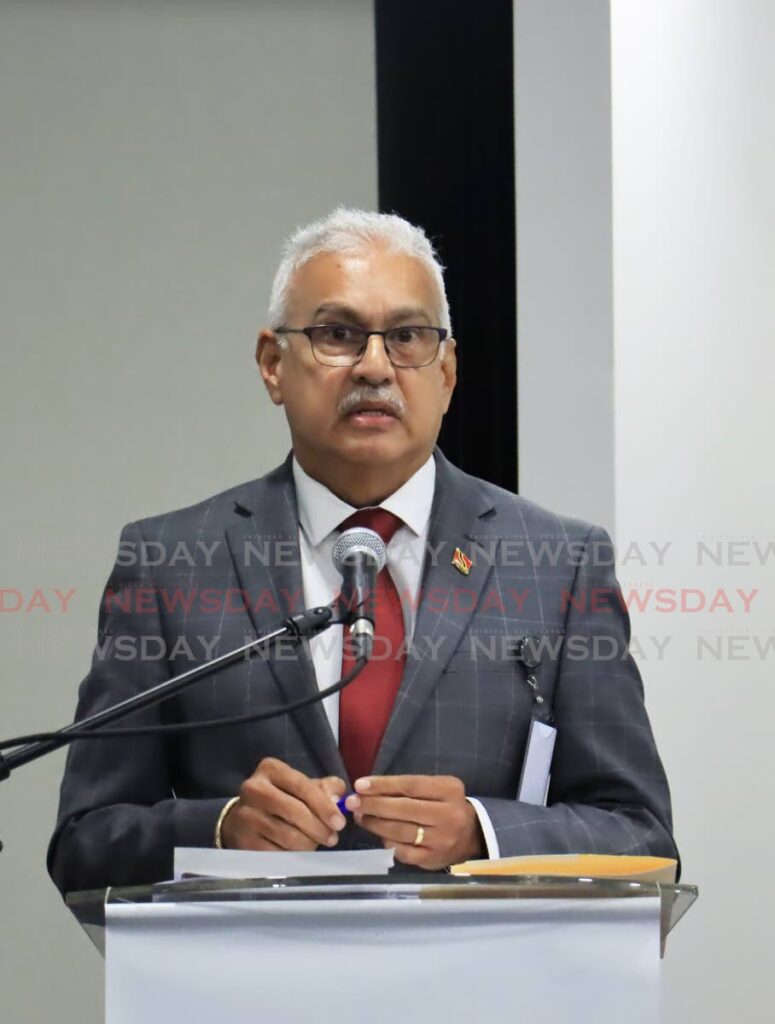Triumph amidst challenges: navigating Trinidad and Tobago's healthcare system

THE EDITOR: As I reflect on my journey through Trinidad and Tobago's healthcare system, I am struck by a sense of déjà vu.
In 2015, I wrote about my experience undergoing a total rotator cuff repair on my right shoulder at the Sangre Grande Hospital, where equipment failures and systemic deficiencies hindered the efforts of my skilled doctors.
Fast-forward to Holy Thursday 2023: a slip-and-fall incident resulted in serious damage to my shoulder; the damage was extensive. I found myself back in the same facility, now a teaching hospital, facing similar challenges once again.
Despite the passage of time and promises of progress, those promises remain an illusion. The Minister of Health, Mr Terrence Deyalsingh, remains at the helm, yet the issues persist.
Now, having undergone several months of recovery from the surgery, I write to address the challenges that continue to plague both patients and dedicated doctors. The solution to these challenges lies not in grand structures that seem to glorify the ego of the power structure of the directorate but in simple, cost-effective measures that are often overlooked.
On May 4, 2023, I underwent surgery at the hospital to have my shoulder repaired. Dr Shiva Mungroo, the anaesthetic consultant and nerve block expert, ably assisted by Dr Brewster and Dr Laeshelle Barsanoo, executed a nerve block. During the procedure, while still awake, I had the opportunity to observe the teaching dynamic within the operating room. Dr Mungroo was teaching young interns, some eager to learn and others visibly confused. Dr Vicarsh Siewrattan, an orthopaedic consultant, and his associate Dr Rakesh Golden, registrar, took the time to explain the procedure and offer their support in reassuring me. I trusted the process and had full confidence in the anaesthetic and orthopaedic team, as well as all the dedicated nurses in the hospital, who were exceptionally professional.
Despite the expertise of Dr Siewrattan, what should have been a routine arthroscopic surgery turned into a gruelling six-hour ordeal, as his progress was impeded by the lamentable state of the hospital's equipment. A medical instrument used to probe injuries arthroscopically a tool vital for the procedure, failed due to inadequate maintenance, forcing the team to resort to a more antiquated and painful method to proceed with the surgery. Dr Siewrattan had to perform a total open rotator cuff repair, making a deep incision six inches across my shoulder to conduct the necessary repairs. Fortunately, due to the skilled anaesthesia team, I remained unconscious throughout the process.
In the wake of my personal ordeal, it is evident that these challenges are symptomatic of broader systemic issues within TT's healthcare infrastructure.
Beyond the confines of the operating theatre, the scarcity of hospital beds serves as a stark reminder of the overwhelming burden placed upon our healthcare facilities, inundated by the relentless tide of lifestyle diseases. Moreover, the incessant cycle of building new hospitals while neglecting existing ones exacerbates the issue at hand.
Thus, I urge the Minister of Health to heed this clarion call for reform. Mere lip service to the idea of lifestyle changes is insufficient; tangible action must be instigated. It is high time to revisit the foundation of health education, integrating comprehensive programs into our school curriculum.
By equipping the younger generation with knowledge about nutrition and well-being, we can lay the groundwork for a healthier future. Implementing simple health education initiatives will empower individuals to manage their health effectively, thereby alleviating the strain on emergency departments and preventing the overcrowding of hospitals.
While advocating for reforms in our healthcare system, it is paramount to acknowledge the invaluable contributions of the dedicated doctors who embody resilience in the face of adversity.
What was initially expected to be a two-month healing process extended into a year, primarily due to the complexities of my open repair surgery, a procedure seldom performed in hospitals nowadays. Dr Tiffany Clerk at Total Rehab played a pivotal role in my recovery journey, employing her expertise in physiotherapy and her dedication to my rehabilitation, albeit with a longer timeframe than anticipated.
Additionally, I feel compelled to express my profound appreciation for the resilience exhibited by Dr Siewrattan and his team at Sangre Grande Hospital.
Nevertheless, my gratitude is tinged with concern as systemic deficiencies persistently erode the effectiveness of our healthcare system. There is no maintenance of hospital equipment, a simple yet crucial practice that could potentially save thousands of dollars.
Moreover, the lack of parking facilities for doctors often forces them to park on the roadside and trek to the hospital.
Additionally, there is a glaring absence of proper amenities for young interns to sit, read and exchange ideas, compounded by the absence of a library at the hospital.
Yet we continue to expand our concrete base, we continue to build and open new hospitals like the Sangre Grande Hospital.
Above all, there is a pressing need to revisit health education programs in communities and schools. As a former teacher myself, I recall a time when health educators visited schools to educate parents about practising healthy lifestyle habits. Revisiting such initiatives could alleviate overcrowding in hospitals and foster a healthier population.
Moreover, poor administration and lack of proper management further exacerbates the challenges within our healthcare system. Recent incidents of Neonatal Intensive Care Unit
deaths in hospitals such as those in Port of Spain and San Fernando highlight the dire consequences of administrative failures. These tragedies are not indicative of a lack of care and diligence from the staff but rather a failure in the administrative processes that govern patient care. Proper management protocols and adequate staffing are essential to prevent such avoidable fatalities.
I am compelled to pose a pressing question to the Minister of Health: When will old talk be replaced by action? Despite that though, it is good to be alive, Mr Deyalsingh.
HARRICHARAN VISHNU SIEUNARINE
via e-mail


Comments
"Triumph amidst challenges: navigating Trinidad and Tobago’s healthcare system"